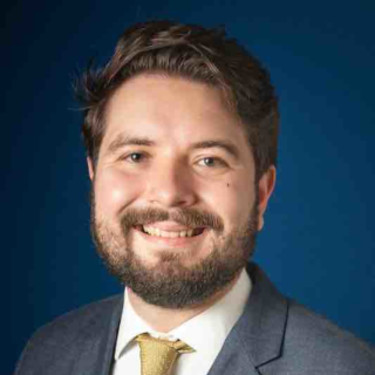
My wife and I have been isolated in our home for the past 33 days. We leave only to get groceries, pick up medications, or walk our dogs around the block. Our lives reflect most of the world: drastically changed due to the pandemic. However, our perspectives are a little different than most. My wife will graduate from physical therapy school next month, and I’m about to begin my fourth year of medical school. As our friends and colleagues who have already graduated head to the front lines of the pandemic, we find ourselves disheartened. It is not only the isolation, but also by knowing we have a tremendous amount of training that we aren’t able to put to use as sidelined trainees.
In lieu of patients to care for, and with a healthy dose of unused energy, my wife and I unwittingly found ourselves waging a two-person war on the misinformation spread on social media. While I never wanted to be that person who argues with people in the comments section, I have been overwhelmed by the commentary and conspiracy theories shared by respected friends and family. A recent poll from Pew Research revealed that nearly one-third of American adults believe the Sars-CoV-2 originated in a lab, despite overwhelming consensus in the scientific community that this is an animal-originated infection.Further, 39% of likely Republican voters believe that the country is overreacting to the current pandemic. And who can blame them? This unsettling data represents a mix of punditry hot takes, ill-conceived marches (led by people in face masks, of course), and Presidential briefings that hopscotch the line between reality and fiction. All of which are the perfect fuel for dubious social media posts.
Misinformation has long been a scourge in the medical community. It would disturb the average American to discover how much of a normal day a clinician spends dispelling long-held beliefs about imagined adverse effects of certain drugs, so-called alternative therapies, or the etiology of diseases. It is such a drag on the system that the skills needed to refute these claims is integrated throughout every level of our training.
In this time of crisis, however, most medical professionals don’t have the time or energy to combat these misconceptions at the point of care, let alone in the greater national conversation. Still, the forces behind misinformation grind on, whether for political, financial, or personal gain, and threaten to disproportionately magnify the pandemic itself. Medical trainees are uniquely situated to fight this misinformation machine, and we should immediately shore up the messaging of a beleaguered health system desperate to prevent disease, not just cure it.
First and foremost, trainees have time for this endeavor. The majority of universities have pulled students from clinical rotations in an effort to promote social distancing and minimize non-essential patient contact. Accrediting bodies have backed this rationale. For example, the American Association of Medical Colleges published recently reiterated guidance recommending all affiliated programs suspend direct patient care for the foreseeable future but permitting volunteer activities when there is a significant need. Working against misinformation on an individual, or even group level, allows us to live up to our desire to be a part of stopping the spread of COVID-19.
Medical trainees also have insights into the healthcare system not afforded to outside individuals. Our training exposes us to everything from pathology to health system structure. This allows us to synthesize complex issues such as testing rates, critical care management, and epidemiologic surveying into digestible and verifiable points for our communities. This is critical as the response to coronavirus can only be as strong as the understanding of the community as a whole.
Additionally, misinformation is a product of our increasing movement towards a public life synonymous with our digital footprint. Individuals raised and socialized under the guise of strict regulation limiting print media from publishing false claims also tend to be the most susceptible to misinformation on the Internet. On the other hand, many current medical trainees have grown up in the digital age, giving them the ability to spot dubious information. This, along with our medical knowledge, lets us refute, redirect, and limit the spread of false claims in real-time.
Most importantly, trainees are firmly situated between the medical and non-medical worlds. As most of us would attest, this makes us a natural go-between that our friends and families utilize for medical advice. While we may not always have the answers (sorry about your cold, Aunt Helen), we are capable of learning. Every medical trainee in America is well-versed in the fundamental vocabulary needed to understand this pandemic. My school has capitalized on this notion by creating a phenomenal crisis medicine course that we completed online. This has equipped my classmates and me with the most current research, expert consensus, and public health measures that make us lean, mean, fake-news-fighting machines.
Medical trainees are an underutilized resource in this current epidemic. While others continue to fight this virus with scientific tools, why can we not fight the effects of this virus with digital ones? I hope that academic institutions, health systems, and public health networks across our country will see in our bright minds and willing hearts an untapped resource, albeit one currently spending its days at home in sweatpants. This pandemic has already stretched our preconceived notions of the roles and responsibilities of every single occupation in the country. Let’s do the same with medical trainees. Let us activate this group of young folks to help prevent disease. Let us fight this pandemic you, even if it’s just from our keyboard.
Matthew Scott is a rising fourth-year medical student at the University of Tennessee Health Science Center College of Medicine. He is an aspiring Med-Peds physician and has been a participant in medical student advocacy at the state and national level, recently completing his term as the Tennessee Medical Student Delegate to the AMA. He and his wife live in Memphis, TN.
Illustration Collage by Jennifer Bogartz / getty
Click here to see more perspectives on COVID-19 from the Doximity network.
Click here for up-to-date news about COVID-19 on Doximity.






